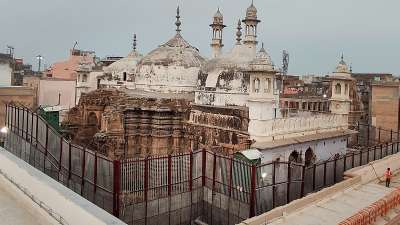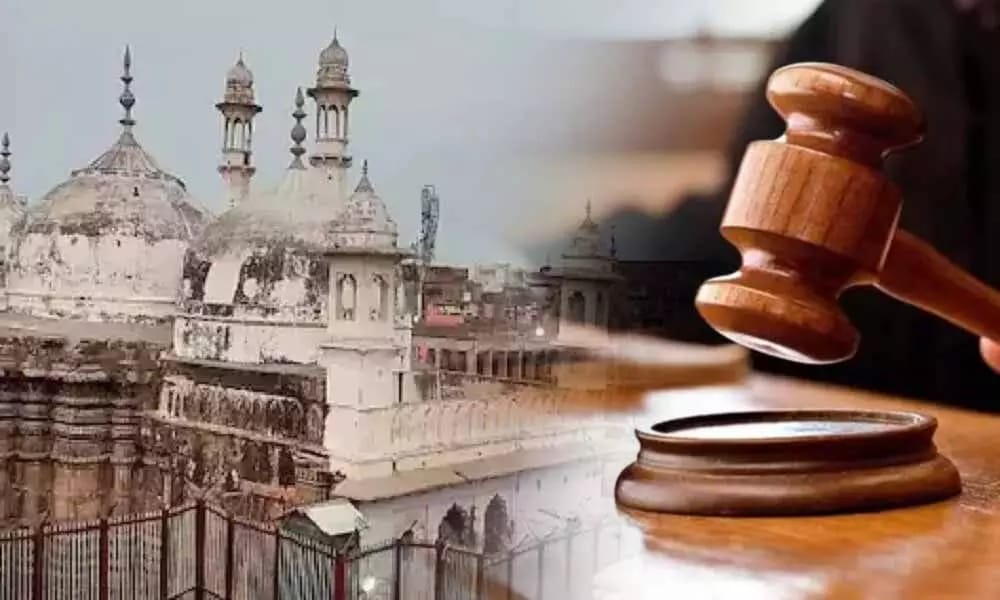Gyanvapi Complex latest judgement from District Judge:
VARANASI: On Friday, a local court ordered the Archaeological Survey of India (ASI) to carry out a scientific assessment of the Gyanvapi complex, which is close to the Kashi Vishwanath temple, to ascertain whether it was built over an earlier Hindu temple construction. However, the complex’s “wuzukhana (ablution pond)” area would not be covered by the survey because it has been locked since a Supreme Court decision in May 2022.
District Judge Ajay Krishna Vishvesha overruled Anjuman Intezamia Masajid’s (AIM), the management committee of the Gyanvapi mosque, objection, saying: “In my view, if ASI will be directed to hold the survey and scientific investigation at the property in question and submit a report, it will help in just and proper disposal of the case and true facts will come before this court (sic).”

He directed the ASI to conduct a scientific investigation using ground penetrating radar (GPR), excavation if required, dating methods and other modern techniques, while ensuring no damage is caused to the structure, and submit a report by August 4, the next date of hearing.
On May 16, 2023, a ruling was made in response to an application filed by four female plaintiffs; the same plaintiffs had also submitted a petition in August 2021 asking to be permitted to offer worship to Shringar Gauri and other deities within the grounds of the Gyanvapi mosque.
The district judge referred to a high court order issued on May 12, 2023 allowing the scientific survey of a rumored “Shivling” discovered in the complex’s ablution pond, and the Supreme Court’s subsequent stay on this order a week later, but claimed that the apex court had not stayed the proceedings in this case.
“It is also vital to make it clear that the relief requested in this application is different from the scope of the judgement issued by the Allahabad High Court on May 12. Therefore, the HC and SC orders issued on May 12 and 19, respectively, will not apply to any orders made in response to this case, the district judge said.
The district judge ordered the ASI to conduct a scientific investigation, survey, and excavation at the subject property (settlement plot No. 9130, where the Gyanvapi mosque is located), excluding the areas sealed on the SC’s orders and by other courts on May 17, May 20, and November 11, 2022.
The ASI has been instructed to carry out the scientific inquiry in consideration of the allegation stated in the application “after associating the plaintiffs, defendants and their respective counsel (sic)” and provide a report with photographs and videotape of the full survey operations.
The court ordered the ASI to look into the building’s western wall’s age and kind of construction, run a GPR study of the region directly beneath the three domes, beneath the western wall, as well as beneath the ground of all the cellars, and excavate if necessary.
Additionally, the agency was instructed to compile a list of all artifacts discovered in the structure, including their contents, and to conduct scientific research and dating exercises to determine the age and type of each artifact.
To determine the age and style of construction, the ASI has also been tasked with dating the building’s pillars and plinths. Additionally, it will look into any artifacts or other items with historical or religious significance that may be discovered during the search that are located in various locations inside the building as well as below the structure.
The order included the historical information that the plaintiffs had cited in their application, information about the court-ordered survey that was done in May 2022 based on a plea from the four plaintiffs in the current action, as well as the AIM’s objections.
The four plaintiffs state in their application that “the actual facts existing within the building in question cannot be proved by oral evidence, and the nature of construction, the age of the structure, certain objects hidden behind the artificial walls and beneath the structure can be proved before the court only on the basis of expert opinion, which may be provided by ASI in this case.”
“…it is necessary and expedient in the interest of justice that the hon’ble court, by virtue of Section 45 of the Indian Evidence Act, direct the ASI to conduct a survey and submit a report with regard to the important question involved in this suit,” the plea states.
The district court stated that the previous survey, in which a “Shivling”-like structure was found in the ablution pond, was completely different from the survey sought in this application by the plaintiffs. The AIM had objected to the demand for a scientific investigation because a court-commissioned survey had already been conducted. Therefore, the order stated, “the objection does not hold much water.”
Also Read: Battle of PUBG Lovers: Seema Haider requested Indian Citizenship from President Droupadi Murmu



